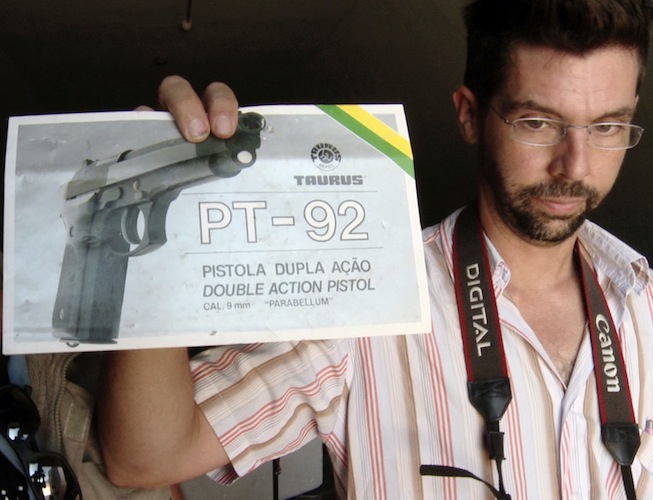Film Review: “E-Team” — A Powerful Documentary about Defending Human Rights
The excellent E-Team documents a remarkable effort to investigate the abuse of human rights, an endeavor that, for the most part, goes unheralded in our mainstream media.
E-Team, at the Brattle Theatre, Cambridge, MA, at 7:30 p.m on Monday, October 6th. (Coming to Netflix on October 26)
Boston Area Film Schedules — What is playing today, Where and When
By Tim Jackson
Katy Chevigny and Ross Kauffman have created an excellent documentary portrait of the work of four investigative workers in service to Human Rights Watch. The E-Team or emergency team is made up of Ole Solvang (a Norwegian), his wife Anna Neistat (from Russia), Fred Abrahams (from Brooklyn), and Peter Bouckaert (from Belgium). The film centers its stories on (now) well-known human right abuses in Libya, Syria, and Kosovo. The four team members do not take charge in the Jason Statham/Vin Deisal mode. Their work is quiet, painstaking, and deliberate. Their ordinary civilian lives stand in startling contrast to the suffering of mothers and fathers who for no clear reason are subjected to the kind of loss and heartbreak most Americans will never know. A mother cries: “Our tears could fill gallons and form a river.”
The E-Team visits bombed villages, sites of genocide, and mass graves. They take testimony, photographs, notes, and offer condolences. Their job is to offer firsthand accounts, [] to the worst violations of human rights, to corroborate their information with other sources, and then advocate for accountability and action. A Syrian villager pleads to the camera: “I lost my brother, my sister, and my step-mother today. What is he looking for, Assad the murderer? What is he looking for?” Assad on TV with Barbara Walters says: “There was no command to kill or be brutal.”
The film dispenses, for the most part, with how access was gained to these locations, but they are undoubtedly dangerous places. Occasionally, we hear gunshots or planes sailing overhead. The blameless victims alternately wail or are benumbed at the losses around them. We see the faces of ordinary men and women as they react to the outer reaches of man’s inhumanity to man. The film is tasteful, in that it does not dwell on images of atrocity and takes great care not to exploit any of the witnesses or put them at risk. The film contrasts the visual account of the work being done with the everyday domestic lives of the four. Neistat and Bouckaert are married with a young son and she is expecting another child. She’s in the field carrying the child in her belly. None of these people are in it for the adventure, but because “it’s nice to be on the right side and fight back.” On the sometimes tedious detective work they do, for the purpose of providing the documentation that will speak for those who cannot, Ole Solvang says: “It may be time consuming and silly, but that’s how we get these guys.”
Despite the fact that there are no permanent answers or solutions, the team’s actions as human rights witnesses make an impact, and it is this flicker of hope amid unimaginable pain that propels the narrative forward. We are privileged to see this humanitarian work, to hear the voices of those directly affected, and to have an opportunity to empathize with the ordinariness of the lives of the four investigators. We are also able to see the results played out on the global stage. E-Team documents a remarkable exercise in international justice that, for the most part, goes unheralded in our mainstream media. What Solvang, Neistat, Abrahams, and Bouckaert do matters, and it is far riskier than they might admit. In fact, one of the cameramen for the film was the late James Foley. The film is dedicated to him.
Tim Jackson is an assistant professor at the New England Institute of Art in the Digital Film and Video Department. His music career in Boston began in the 1970s and includes some 20 groups, many recordings, national and international tours, and contributions to film soundtracks. He studied theater and English as an undergraduate and has also has worked helter skelter as an actor and member of SAG and AFTRA since the 1980s. He has directed a trio of documentaries: Chaos and Order: Making American Theater about the American Repertory Theater, and Radical Jesters, which profiles the practices of 11 interventionist artists and agit-prop performance groups. His third documentary, When Things Go Wrong, about the Boston singer/songwriter Robin Lane, with whom he has worked for 30 years, has just been completed. He is a member of the Boston Society of Film Critics. You can read more of his work on his blog.

